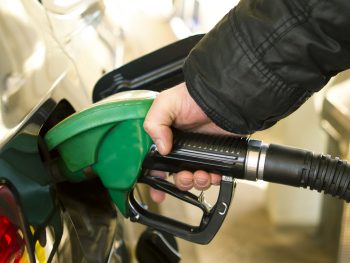Spring Budget 2023: Chancellor extends fuel duty cut
Chancellor Jeremy Hunt has confirmed that the current freeze on fuel duty and the temporary 5p cut introduced last year will be maintained for the next year, bringing relief to drivers.

The RAC had warned that a rise in fuel duty could cause “untold damage” to inflation and the economy
Following weeks of campaigning from MPs and organisations including the AA and RAC, Hunt said: “Because inflation remains high, I have decided now is not the right time to uprate fuel duty with inflation or increase the duty.
“So, here’s what I am going to do. For a further 12 months I’m going to maintain the 5p cut and I’m going to freeze fuel duty too. That saves the average driver £100 next year and around £200 since the 5p cut was introduced.”
It’s the 13th year running that fuel duty has been frozen at 57.95p a litre and the freeze, along with the 5p cut to 52.95p, will save drivers around £6bn a year. The RAC estimates it will slash £3.30 off a full tank of fuel.
The move was announced as Hunt delivered his first Budget – where he announced the latest Office for Budget Responsibility (OBR) forecast that the UK will not enter a technical recession this year and that the Government is on track with priorities to halve inflation, reduce debt and get the economy growing.
Concerns had been rising about a rise in fuel duty since the Autumn Statement, when Office for Budget Responsibility documents released after the announcement forecasted a 23% rise, bringing further pain for drivers amid the cost-of-living crisis.
The RAC had warned that a rise in fuel duty could cause “untold damage” to inflation and the economy while MPs had delivered a petition with 131,000 signatures to No 10 11 Downing Street, calling for a continued fuel duty cut or at least an ongoing duty freeze.
“Much-needed relief amid the most torrid year ever at the pumps”
RAC head of roads policy Nicholas Lyes welcomed the decision to keep the 5p fuel duty cut in place for another 12 months.
“The cut has given drivers some much-needed relief in what has been the most torrid year ever at the pumps, with price records being broken even after duty was cut. Given the importance of driving for consumers and businesses, duty should be kept low to help fight inflation.”
Craig Mackinlay MP and Fair Fuel APPG chair, said common sense had prevailed.
“We have been lobbying hard for months to get common sense to prevail. This is good news for the millions of motorists who have experienced the most extreme fuel prices over the past year. One of the primary aims of the Government is to reduce inflation so I am not altogether surprised. It would have been perverse in the extreme to add to inflation with a tax rise. Thank you, Chancellor.”
Bryn Brooker, head of road safety at British dash cam specialist Nextbase, also said it was fantastic news, elaborating: “Unfortunately, some of those drivers would have put off needed maintenance or engaged in dangerous fuel-saving driving techniques had prices soared even higher.”
The AA said the Chancellor had spared drivers ‘heavy-duty’ pain at the pumps, adding that finances for many families are so tight that a £3.30 hike to the cost of a tank of fuel “would have tipped many of those knife-edge budgets into much greater difficulty”.
Its data shows that 28% of drivers (rising to 40% in the lower income group) buy a set amount of fuel whenever they got to a fuel station.
AA figures also reveal that while pump prices are currently stable – averaging 147.28p a litre for petrol and 166.05p for diesel – they remain much worse than the records pre-Covid and before the Ukraine war.
But while Right Fuel Card welcomed the initiative, it said it had been hoping for a reduced rate or a further price reduction in “an attempt to slightly balance out the volatile and stubbornly high fuel prices from 2022”.
Domenico Mariconda, CEO at the fuel card provider, added: “Whilst pump prices are beginning to decline, they’re still much higher than they ever have been.
“Whilst overall fuel prices are out of the Government’s hands, we’d hope that consumers will see a fall in prices throughout 2023 in line with the drop in oil prices that we’ve seen in 2022, especially with sustained pressure from a variety of sources. We’re also keen to see retailers passing on lower exchange rates to customers, something that’s come under huge criticism in recent months.”
And think-tank Centre for London said freezing fuel duty while pushing up public transport fares by 5.9% will have “real impacts on the 42% of London’s households that don’t own a car and rely on tubes, buses and trains”.
Research director Claire Harding added: “Making driving relatively cheaper, while public transport gets more expensive, won’t help us reach net zero by 2030. Instead, we need more investment in public transport. The lack of any new money for some of the city’s big schemes like the Bakerloo Line extension is notable by its absence.”














